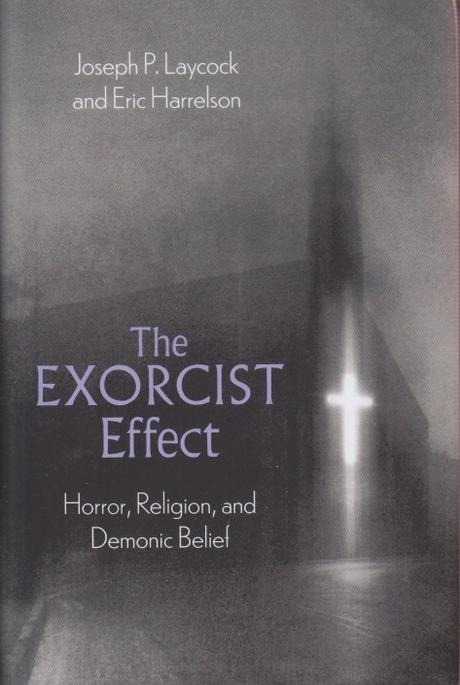
Every once in a while you find a book you wish had been published sooner. The Exorcist Effect, by Joseph P. Laycock and Eric Harrelson is one of those books. Although it covers many of the same films I talk about in Nightmares with the Bible, it does so with a different target in mind, and a lower price point. Drawing on the observation that human recall is often accompanied by “source amnesia,” they explore the idea that famous horror films (and some less famous) get remembered as “facts.” This seems to be a greater danger to those who don’t actually watch horror or who watch it uncritically. Movies such as The Exorcist become the basis for what individuals believe about demons. But it’s far more dangerous than that, because in a culture where everything’s politicized, horror movies become “the truth” for groups like QAnon.
Considering Rosemary’s Baby, The Exorcist, and The Omen as prime examples, they then move on to consider the fascinating, if weird, lives of Ed and Lorraine Warren, and Malachi Martin. Popularizers such as these three influenced both horror films and general public opinion about demonic possession and exorcism. The study moves on to the Satanic Panic of the eighties and nineties and how heavy metal music both utilizes and ties into the Exorcist Effect. This important book ends by discussing the very real dangers of a society that elects presidents and others based on this Effect, which confuses reality and movies. The book shows how many of the ideas behind conspiracy theories either misremember, or intentionally misuse, horror films.
Back in the days when I started Nightmares with the Bible there was comparatively little published in readable terms that discussed demons or, specifically, the portrayal of exorcism in movies. Laycock and Harrelson’s book would’ve been a welcome contributor to that dearth of resources. As someone who works on the fringes of the fringe, I don’t always hear the discussions other scholars have and I’m often left to my own devices when it comes to finding and reading information on horror films. Without library privileges, it often means having to purchase the books to access them. I was thrilled when I first learned about this book and I’m glad to have finally had the opportunity to read it. I’m sure I’ll be coming back to it on occasion. After writing Nightmares, I took a bit of a break from demons because being in the dark for too long can do odd things to a person. But not knowing about them, as this book shows, might cause even greater problems.
